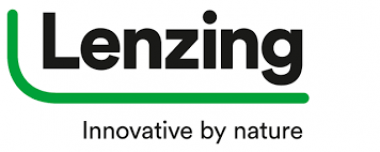Lenzing aktualisiert Klimaziele
Die Lenzing Gruppe hat ihre Klimaziele aktualisiert, um ihr Engagement zur Bekämpfung des Klimawandels an den Zielen des Übereinkommens von Paris zur Begrenzung des menschengemachten globalen Temperaturanstiegs auf 1,5 Grad Celsius auszurichten. Die Science Based Targets Initiative (SBTi) hat diese Zielverbesserung überprüft und bestätigt.
Bis 2030 will Lenzing auf dem Weg zur Netto-Null ihre direkten Emissionen aus der Produktion ihrer Faser- und Zellstoffanlagen (Scope 1) und ihre Emission aus gekaufter Energie (Scope 2) um 42 Prozent sowie ihre indirekten Emissionen entlang der Wertschöpfungskette (Scope 3) um 25 Prozent senken, ausgehend vom Jahr 2021. Dies entspricht einer absoluten Reduktion um 1.100.000 Tonnen (statt der bisher angestrebten 700.000 Tonnen).
Folgende Ziele wurden von der SBTi anerkannt und bestätigt:
- Gesamt-Netto-Null-Ziel: Die Lenzing AG verpflichtet sich, bis 2050 entlang der gesamten Wertschöpfungskette Netto-Treibhausgasemissionen von Null zu erreichen.
- Kurzfristige Ziele: Die Lenzing AG verpflichtet sich, die absoluten Scope-1- und Scope-2-Treibhausgasemissionen bis 2030 gegenüber dem Basisjahr 2021 um 42 Prozent zu reduzieren. Die Lenzing AG verpflichtet sich außerdem, die absoluten Scope-3-Treibshausgasemissionen aus eingekauften Waren und Dienstleistungen, Kraftstoffen und energiebezogenen Aktivitäten sowie vorgelagertem Transport und Vertrieb innerhalb desselben Zeitraums um 25 Prozent zu reduzieren.
- Langfristige Ziele: Die Lenzing AG verpflichtet sich, die absoluten Scope-1- und Scope-2-Treibhausgas-emissionen bis 2050 gegenüber dem Basisjahr 2021 um 90 Prozent zu reduzieren. Die Lenzing AG verpflichtet sich außerdem, die absoluten Scope-3-Treibhausgasemissionen im gleichen Zeitraum um 90 Prozent zu reduzieren.
Die aktualisierten Klimaziele ersetzen das ebenso von der SBTi genehmigte Klimaziel aus dem Jahr 2019.
Lenzing AG








